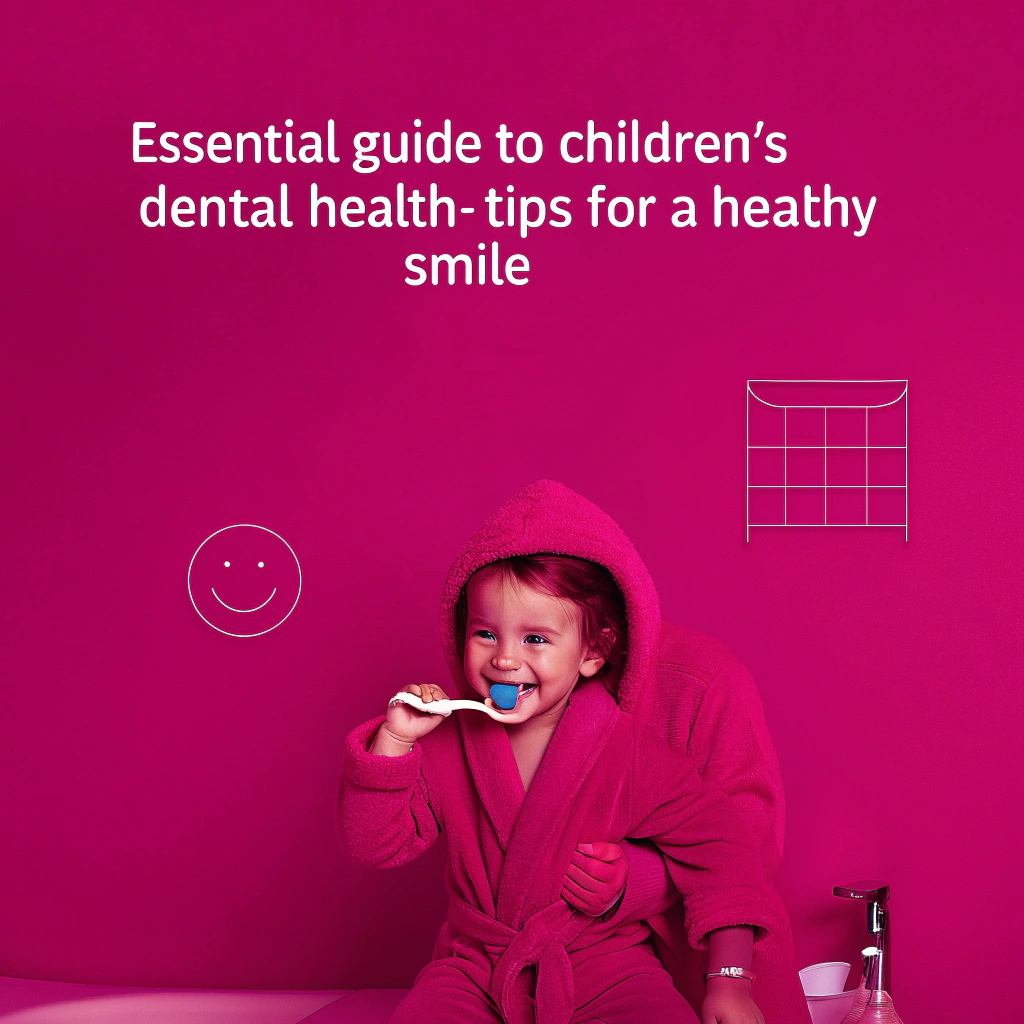A bright, healthy smile is a cornerstone of your child’s overall well-being and confidence, and maintaining good children’s dental health is essential for this. Good oral hygiene habits, when developed early, lay the foundation for strong teeth and gums that last a lifetime. As parents and caregivers, understanding how to care for your child’s dental health is crucial to preventing cavities, tooth decay, and other oral issues.
This guide provides practical tips and expert advice to help you nurture your child’s dental health in a fun, effective way. From teaching proper brushing techniques to understanding the importance of regular dental checkups, we’ve got you covered to ensure your little one grows up with a smile that shines!
Why Is Dental Health Important for Children?
Your child’s teeth play a crucial role in their development. Healthy teeth and gums are essential for chewing, speaking, and building confidence with a bright smile. Poor oral hygiene, on the other hand, can lead to issues like tooth decay, infections, and even long-term dental problems.
Dental health impacts more than just the mouth—it’s closely linked to overall health. Studies show that poor oral health can increase the risk of other health issues, such as heart disease later in life. That’s why establishing good oral hygiene practices from a young age is so important.

1. Start Early: Care for Baby Teeth
Your child’s dental health journey begins long before their first teeth appear. Here’s what to do:
- For Infants: Wipe your baby’s gums with a clean, damp cloth after feedings to remove bacteria. Once their first teeth come in (around 6 months), start brushing gently with a soft-bristled toothbrush and water.
- Use Baby-Friendly Toothpaste: Introduce fluoride toothpaste as soon as your child has teeth, but use a rice grain-sized amount for children under three.
- Avoid Bottle Decay: Avoid putting your child to bed with a bottle containing milk, juice, or other sugary drinks, as this can lead to tooth decay.
2. Teach Proper Brushing Techniques
Children often need guidance to learn how to brush effectively. Here are some tips:
- Brush Twice a Day: Teach your child to brush their teeth for two minutes, once in the morning and before bedtime.
- Use the Right Toothbrush: Choose a toothbrush with soft bristles and a small head designed for kids.
- Make It Fun: Turn brushing into a game with songs, timers, or colorful toothbrushes to keep them engaged.
- Supervise Brushing: Until your child is around 6-8 years old, supervise their brushing to ensure they’re doing it properly.
3. Introduce Flossing Early
Flossing is just as important as brushing, as it removes food particles and plaque between teeth where toothbrushes can’t reach.
- Start flossing your child’s teeth once they have two teeth that touch.
- Use child-friendly flossers or floss picks to make it easier for little hands.
- Make it a habit by incorporating flossing into your child’s bedtime routine.
4. Prioritize a Healthy Diet
Nutrition plays a huge role in dental health. Foods rich in vitamins and minerals, especially calcium and phosphorus, strengthen your child’s teeth. Here’s how to encourage a tooth-friendly diet:
- Limit Sugary Snacks and Drinks: Sugary treats and acidic drinks can erode enamel and lead to cavities.
- Choose Whole Foods: Incorporate fresh fruits, vegetables, dairy products, and whole grains into your child’s diet.
- Offer Water: Encourage your child to drink water, especially after meals, to rinse away food particles and maintain hydration.

5. Schedule Regular Dental Checkups
Professional dental care is essential for spotting problems early and ensuring your child’s teeth develop properly.
- Take your child for their first dental visit by their first birthday or within six months of their first tooth erupting.
- Schedule regular checkups every six months to monitor their oral health.
- A pediatric dentist specializes in children’s dental care and can provide tips tailored to your child’s specific needs.
6. Protect Their Teeth
Preventing damage to your child’s teeth is as important as maintaining hygiene. Consider these protective measures:
- Mouthguards for Sports: If your child participates in sports, make sure they wear a mouthguard to prevent injuries.
- Sealants: Ask your dentist about applying sealants, which are protective coatings applied to the chewing surfaces of molars to prevent cavities.
7. Lead by Example
Children learn by watching you, so model good oral hygiene practices:
- Brush and floss your own teeth regularly to show them the importance of dental care.
- Make dental care a family activity by brushing together.
Conclusion:
Caring for your child’s dental health is a lifelong investment in their overall health and happiness. By starting early, teaching good habits, and staying consistent, you’re setting your child up for a lifetime of healthy smiles.
Remember, dental health isn’t just about brushing—it’s about creating a positive experience around oral hygiene that your child will carry with them into adulthood. Follow these tips, and your little one will have a happy, healthy smile for years to come!

